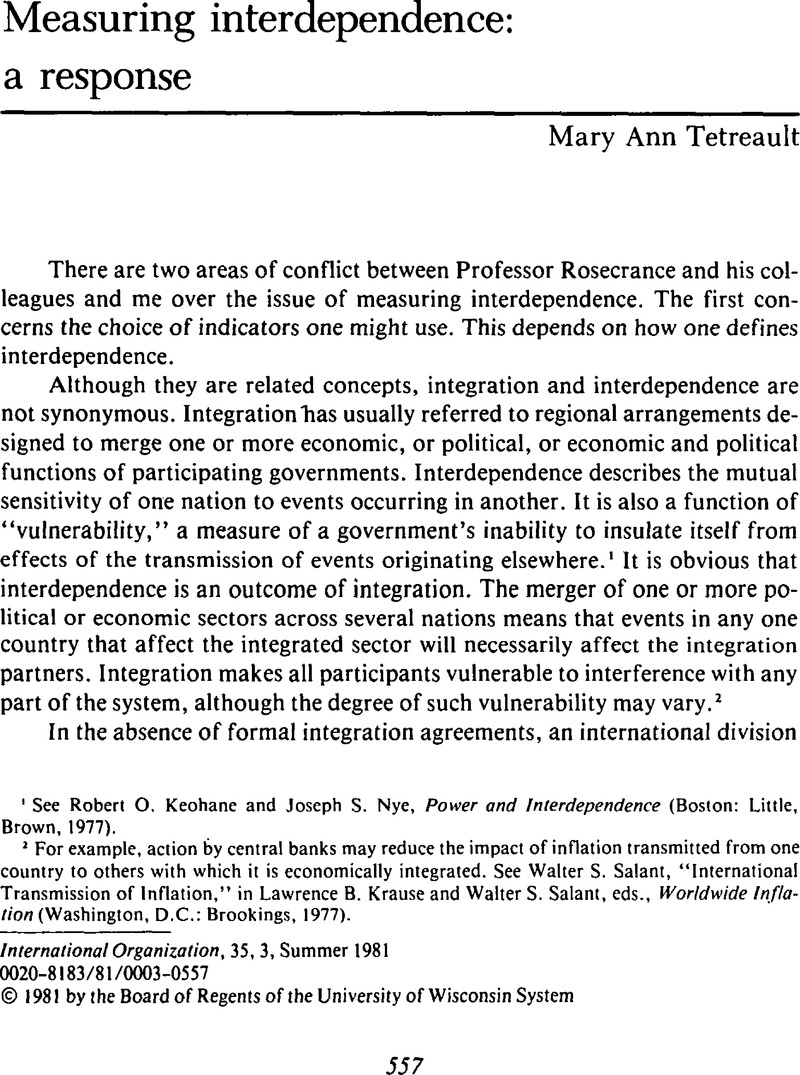No CrossRef data available.
Article contents
Measuring interdependence: a response
Published online by Cambridge University Press: 22 May 2009
Abstract

- Type
- Comments
- Information
- Copyright
- Copyright © The IO Foundation 1981
References
1 See Keohane, Robert O. and Nye, Joseph S., Power and Interdependence (Boston: Little, Brown, 1977)Google Scholar.
2 For example, action by central banks may reduce the impact of inflation transmitted from one country to others with which it is economically integrated. See Salant, Walter S., “International Transmission of Inflation,” in Krause, Lawrence B. and Salant, Walter S., eds., Worldwide Inflation (Washington, D.C.: Brookings, 1977)Google Scholar.
3 Rosecrance, Richard, Alexandroff, Alan, Koehler, Wallace, Kroll, John, Lacqueur, Shlomit, and Stocker, John, “Whither Interdependence?” International Organization 31 (Summer 1977)CrossRefGoogle Scholar.
4 Shaath, Nabeel, “High Level Palestinian Manpower,” Journal of Palestinian Studies 1 (Winter 1972)CrossRefGoogle Scholar, Table 1.
5 Birks, J. S. and Sinclair, C. A., “Egypt: A Frustrated Labor Exporter?” The Middle East Journal (Summer 1979): 288–303Google Scholar.
6 See the articles in Krause and Salant, eds., Worldwide Inflation.
7 Crockett, Andrew C. and Evans, Owen J., “Demand for Money in Middle Eastern Countries,” International Monetary Fund Staff Papers 27 (09 1980), p. 549Google Scholar.
8 See ibid, p. 560; Durbin-Watson statistics were not reported in “Whither Interdependence?” and, in any case, are not easily interpretable for small numbers of observations.


